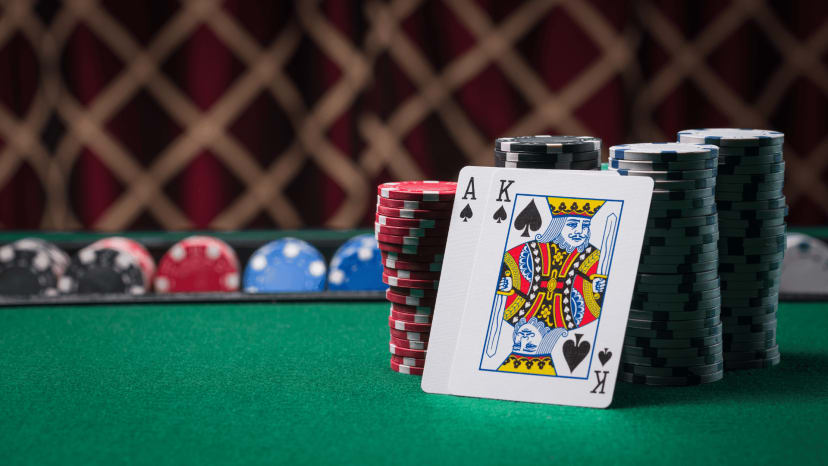A Beginner's Guide to Bluffing in Online Casino Poker

You're about to embark on an exciting journey into the world of online casino poker. This guide is designed to help you, especially if you're a beginner, to understand and master one of the most thrilling aspects of poker: bluffing. Bluffing is not just about deception; it's an art that, when mastered, can significantly increase your chances of winning. If you're eager to put these skills into practice, we highly recommend visiting one of the top-rated online casinos listed on CasinoRank. Not only will you find a safe and enjoyable environment, but you'll also have the opportunity to apply these strategies in real games. So, let's dive in and turn you into a bluffing pro!
Understanding Bluffing: The Basics in Ghanaian Poker Games
Bluffing in online casino poker is like being a magician. You create an illusion, making your opponents believe something that's not true about your hand. It's a strategy used to mislead other players into thinking you have a stronger or weaker hand than you actually do. The goal? To influence their actions in a way that benefits you.
Why Bluff in Online Poker?
The power of bluffing lies in its ability to tilt the game in your favour. By bluffing, you keep your opponents guessing, making it harder for them to predict your moves. This unpredictability is what can lead you to win pots even when you don't have the best hand.
Mastering the Art of Bluffing for Ghanaian Players
Discover the secrets to mastering the art of bluffing in poker below, where we unveil strategies and tips to enhance your game.
Choosing the Right Moment to Bluff
Timing is everything in bluffing. The best bluffs are those made when the conditions are just right. For instance, bluffing tends to work better against one or two opponents rather than a large group. Also, your table image plays a crucial role. If you've been playing conservatively, your bluff is more likely to be believed.
Reading Your Opponents Like a Pro
Understanding your opponents is key. Pay attention to their playing style. Are they aggressive or cautious? Do they fold easily or tend to call every bet? Knowing this can help you decide when and against whom to bluff.
Controlling Your Tells
Poker is not just played with cards; it's also played with body language. In online poker, while physical tells are not visible, betting patterns and the speed of play can be giveaways. Be aware of your own actions and try to be consistent whether you're bluffing or not.

Advanced Bluffing Strategies
Dive into the world of advanced bluffing strategies below, where you'll learn sophisticated techniques to elevate your poker game at top online casinos.
Semi-Bluffing
Semi-bluffing is a clever mix of bluffing and playing a decent hand. It's when you bluff but still have a hand that could improve and become strong. This strategy lowers your risk because you're not entirely reliant on your opponents folding.
Bluffing in Different Stages of the Game
Bluffing can be effective at any stage of the game, but its impact varies. Early in the game, players are more likely to call bluffs, as they have more chips. Later in the game, when stakes are higher, a well-timed bluff can be more effective.
The Psychology of Bluffing
Bluffing is as much about psychology as it is about strategy. It's about understanding human behavior and using it to your advantage. This involves projecting confidence, reading subtle cues from your opponents, and making decisions based on intuition as well as logic.
Practical Tips for Effective Bluffing
- Start Small. If you're new to bluffing, start with small bluffs. This way, you can test the waters and see how your opponents react without risking too much.
- Learn from Each Game. Every game is a learning opportunity. Pay attention to what works and what doesn't. Over time, you'll develop a sense for when and how to bluff effectively.
- Stay Unpredictable. Vary your bluffing strategy. If you bluff in the same way too often, your opponents will catch on. Keep them guessing to maintain the upper hand.
Conclusion: Taking the Next Step
Now that you've gained a fundamental understanding of bluffing in online casino poker, it's time to put these strategies into action. Remember, practice makes perfect. Visit a top-ranked online casino on CasinoRank to experience real poker games and refine your bluffing skills. Embrace the challenge, stay patient, and most importantly, have fun as you journey through the fascinating world of poker bluffing!
FAQ
What Are the Basic Principles of Bluffing in Poker?
Bluffing in poker is essentially about making your opponents believe you hold a stronger or different hand than you actually do. It's a clever strategy to influence their decisions, either by getting them to fold a winning hand or to call your bet with a weaker one.
How Often Should I Bluff in a Poker Game?
The ideal frequency for bluffing depends heavily on the game's flow and the players you're up against. There isn't a fixed rule, but a smart approach is to bluff sparingly. Bluffing too often can make your play predictable and easy for others to read.
Can Beginners Successfully Bluff in Poker?
Absolutely, even beginners can pull off successful bluffs in poker. The key is to first grasp the game's fundamentals and keenly observe your opponents' habits and betting patterns. Practicing with small bluffs in lower stakes games is an excellent starting point.
Are There Different Types of Bluffs in Poker?
Indeed, poker features various types of bluffs. The most common are the "pure bluff," where you have a very weak hand with little chance of improving, and the "semi-bluff," where your hand, though not strong yet, has good potential to become a winning hand. Knowing when to deploy each type is vital for effective bluffing.
How Do I Recognize a Bluff from Another Player?
Spotting a bluff requires careful observation of betting patterns, the timing of their actions, and any deviations from a player's usual behaviour. In online poker, specifically, pay close attention to how quickly a player places their bets and the size of those bets, as these can often signal a bluff.














